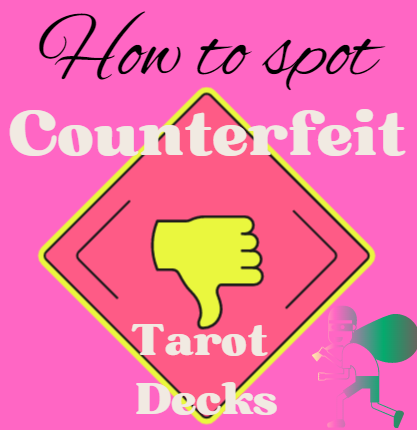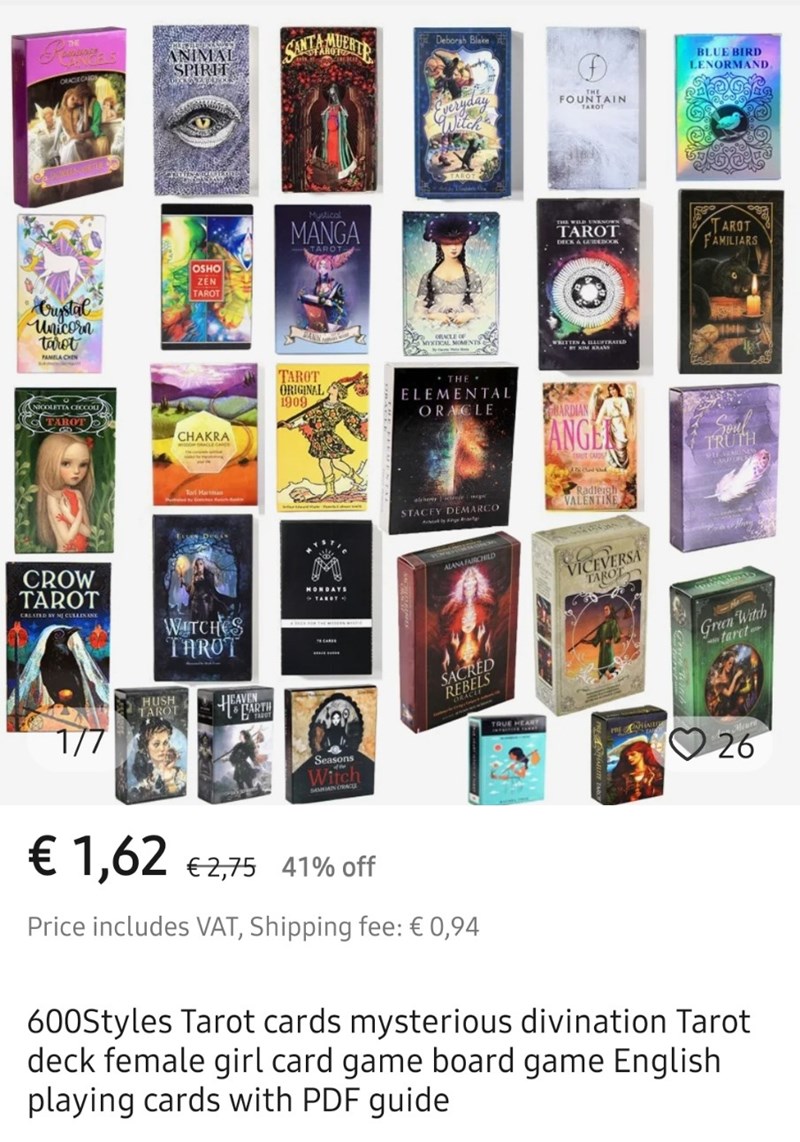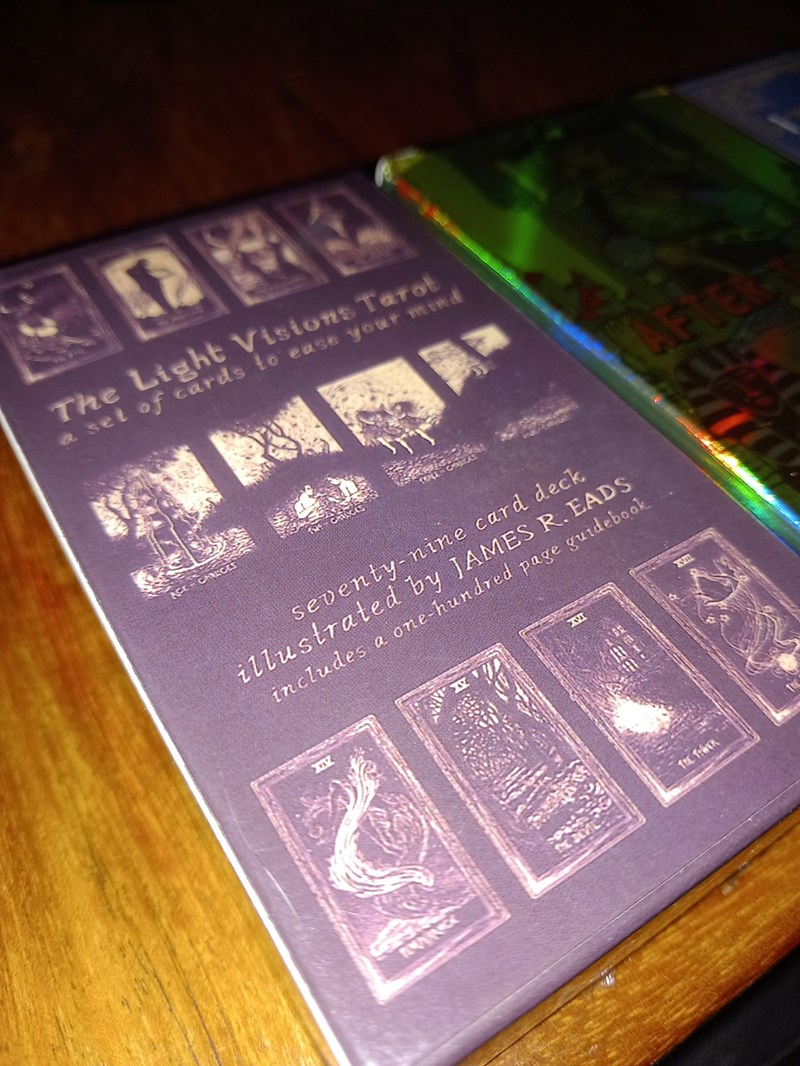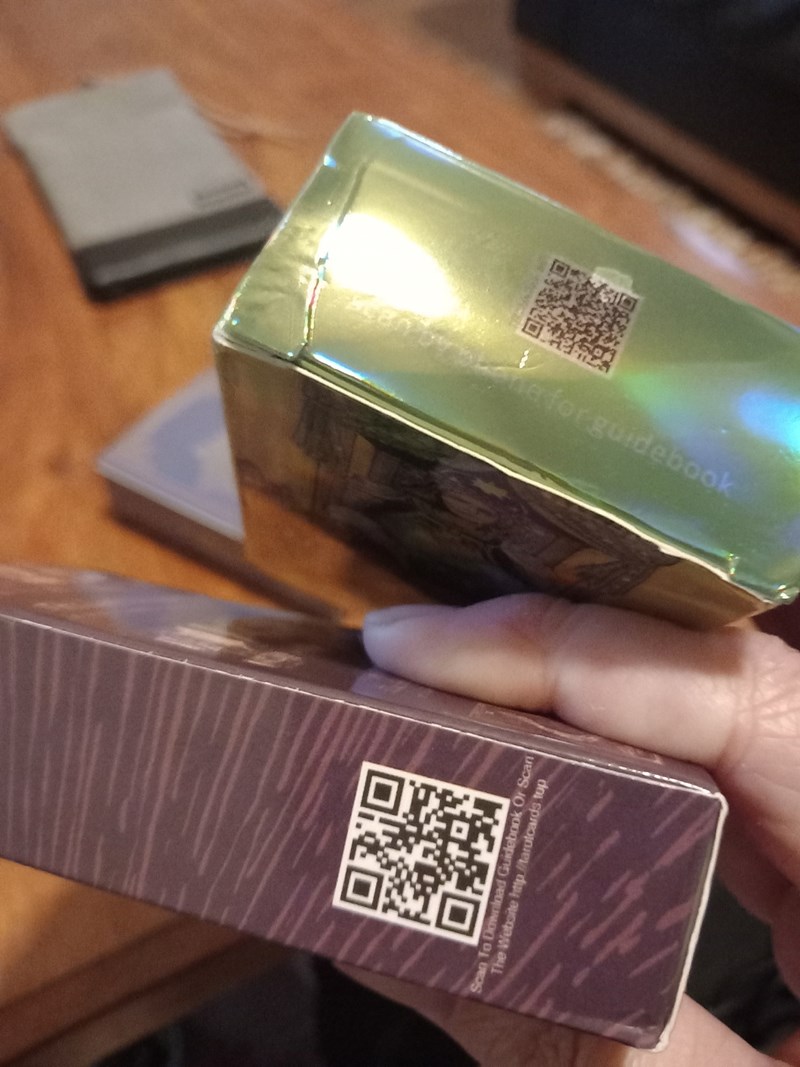
Counterfeit Tarot Decks - How to Spot Them
Added at 15:23 on 08 March 2023
Let’s talk about fake tarot decks.
Counterfeit tarot decks are a plague on the tarot world. They can be found most places that sell tarot decks, such as Amazon, eBay, even your local shops, and the obvious places such as Wish, AliExpress, etc.
What is a fake deck?
A counterfeited tarot deck is a stolen deck idea that is presented as the original and passed off fraudulently as genuine. Like all counterfeit goods, they are illegal to create and sell, and in most cases to buy the, and come with ethical implications.
How to spot one
- The first thing that gives them away is the price. They can be as little as a few pounds in most cases, and often all the decks on offer are the same price. Genuine tarot decks are all different prices due to many factors, and often when they are selling an OOP (out of print) deck, they would not be at a low price. Sadly, at times they charge the correct price or even more and advertise them with the same images as the publishers.
- Tarot decks, like books have a unique ISBN, a number which is solely for them. This is often missing from fake decks, or the one given is not relevant to the item. Yet if a deck or book is not sold via a real store, often they can be missing for reasons of not being legally needed.
- When the seller promotes them in a single combined image, the boxes are frequently all the same size. Real tarot decks come in different sizes; some are small, some very large, and yes, some will be the same, but if you see a collection of 20 decks in an image and they are all the same size, think fake.
- The boxes are often all "tuck boxes," as you would find with standard playing cards. While a lot of genuine tarot decks come in tuck boxes, nearly all pirated copies do, so it's a good sign if all the other "tells" are present.
- QR codes are often printed on the back of the boxes of fake tarot cards. As most original tarot decks come with a LWB (little white book), counterfeits come with a QR code that is meant to take you to details of the deck, but often the code does not take you anywhere. Some genuine decks also come with a QR code, so keep that in mind.
- The publisher's details are missing or altered—if you see a deck you like, find out who the publishers are, and from their site, you can see what a genuine copy of the deck looks like as well as their logo.
- Quality is often a big issue. Some are not the correct size of their genuine counterparts due to their being made to a uniform size for all decks by the counterfeit publishers. Print quality can be poor, colours can be dull, and pictures can be printed at an angle or closer to one side of the border than another. Decks, which when original have guilt edges, do not when faked, and the card stock can be very flimsy.
It can often be the case, unless it is glaringly obvious, or you can put the dots together if the seller has their wits about them to notice some before you buy. Even reviews cannot help, as bad ones can be removed, and some buyers may be inexperienced and praise the decks unaware that the real one is far better quality.
 |
 |
 |
Who cares?
If this is a question you ask, as you wish to have a cheap tarot deck, then maybe you need to place yourselves in the shoes of the artist who has created 78 pieces of artwork for someone, usually in China, to steal, pirate and mass produce them. If the cost is all that matters, then I doubt you would have read this far as an artists intellectual property can mean little to such people.
Ethically, it is theft, and knowingly buying them is supporting a criminal organization. It may be seen as a victimless crime, but for those who have dedicated years to creating the art, that is not the case. Artists can do little to stop their work from being ripped off, and when we buy a genuine tarot deck, new or used, we support their dedication.
Is it bad luck?
I often see people asking if using a fake deck will bring them bad luck—no. It is just like any other tarot deck, genuine or otherwise.
But I can’t afford a real deck.
A common response to this issue. Yet you can buy preloved decks quite cheaply online, some as low as £3 to £5 and the quality will be far superior.
What to do if you get a deck?
Most will find one in their procession at some stage—either from not knowing they are being ripped off, trusting a seller, or not having enough knowledge to know. What we can do is limited: we can inform the seller, as they may not know themselves, we can report the seller, boycott them. But the best thing to do is to get educated and then just not buy them once you’re aware of the issue.
You can keep them; I have kept all mine for reference, as even I have been caught out—long before I even knew they were a "thing". You can bin them. Make use of them for arts and crafts, etc. What you do with them is not the issue; the morality of buying them consciously is.
Consciously buying a pirated copy of a deck is a matter of your own ethics. It is a case of "if you would not like it done to you, don’t do it to another". We may not be able to change the market, but we can avoid buying from it and supporting it.


